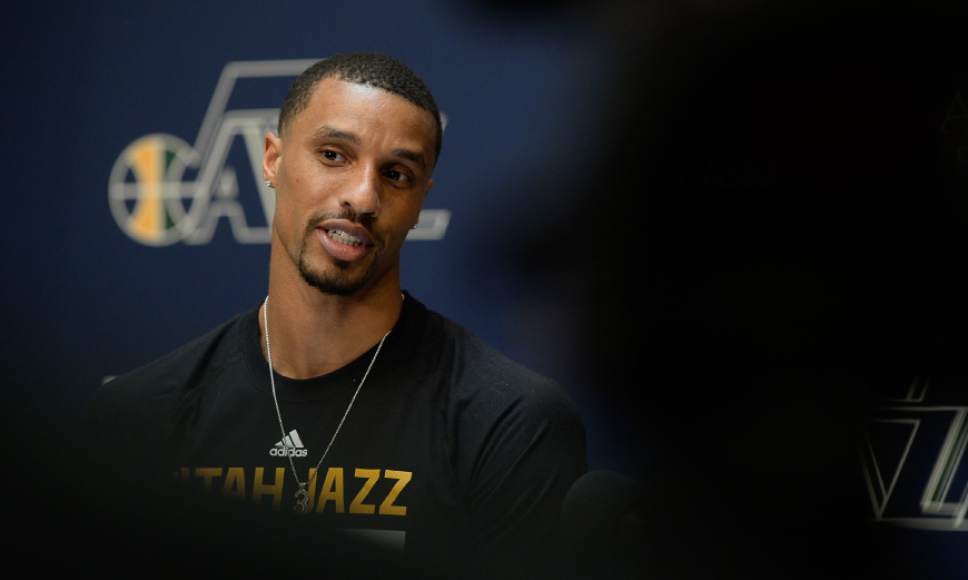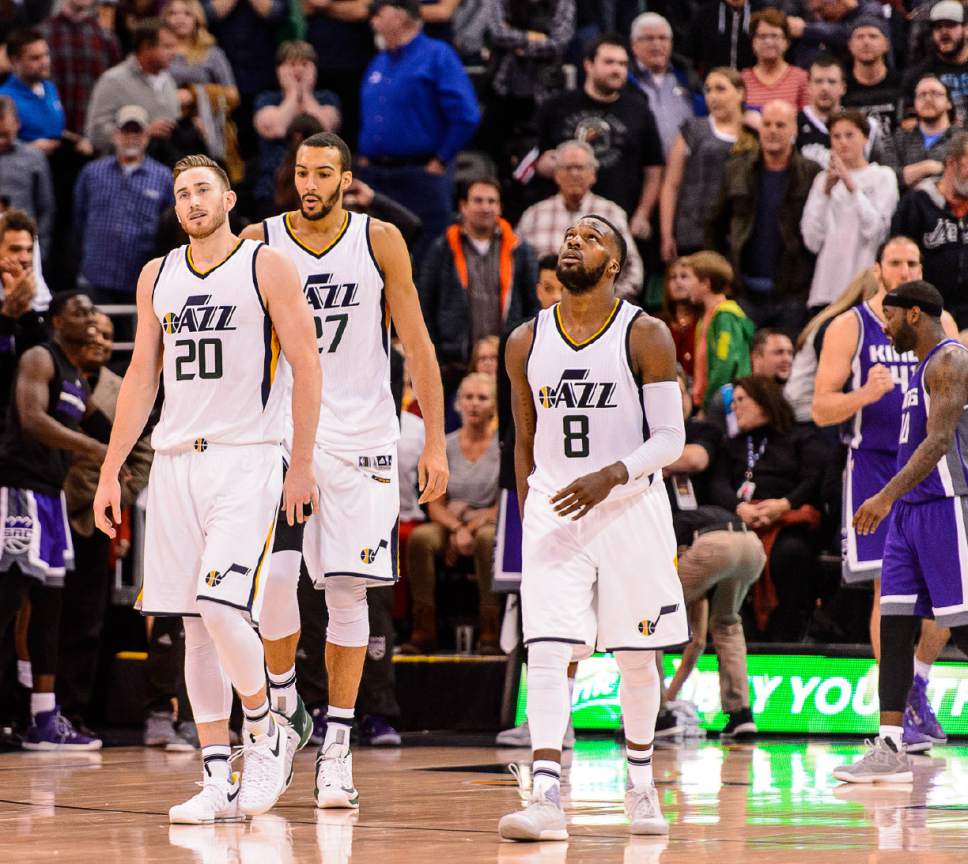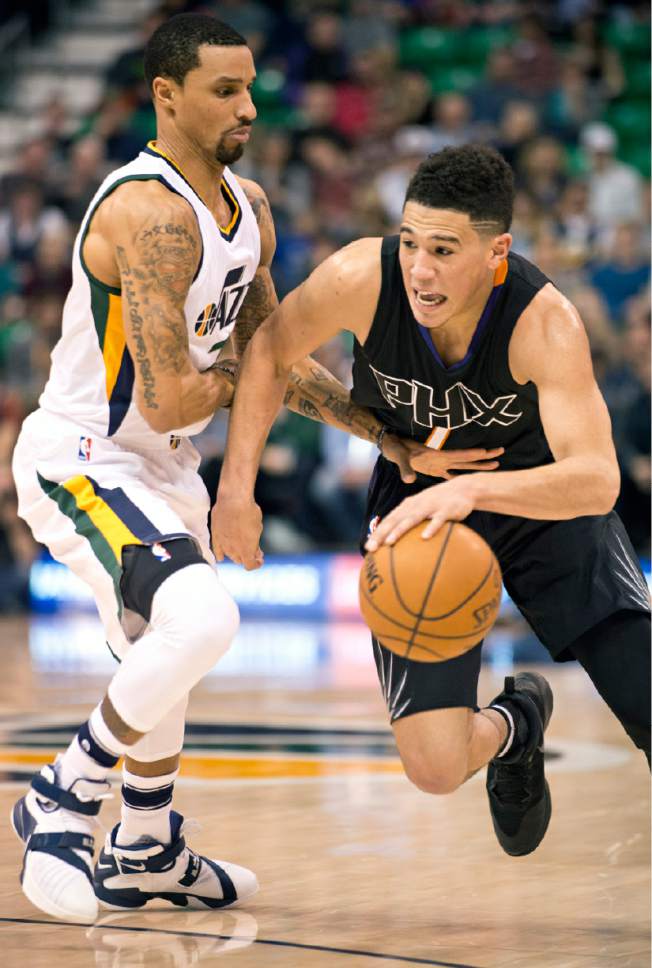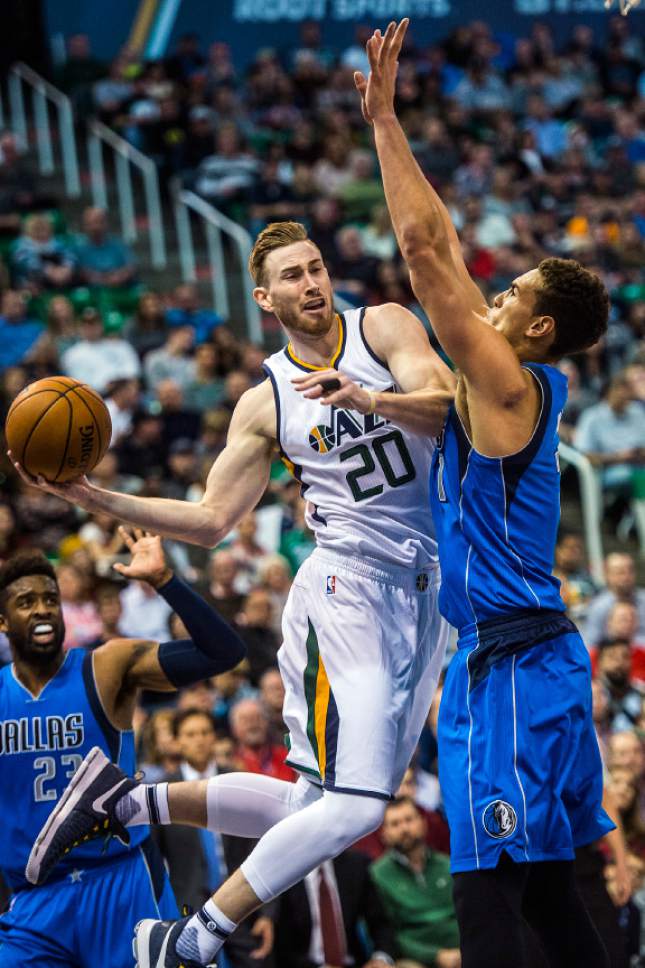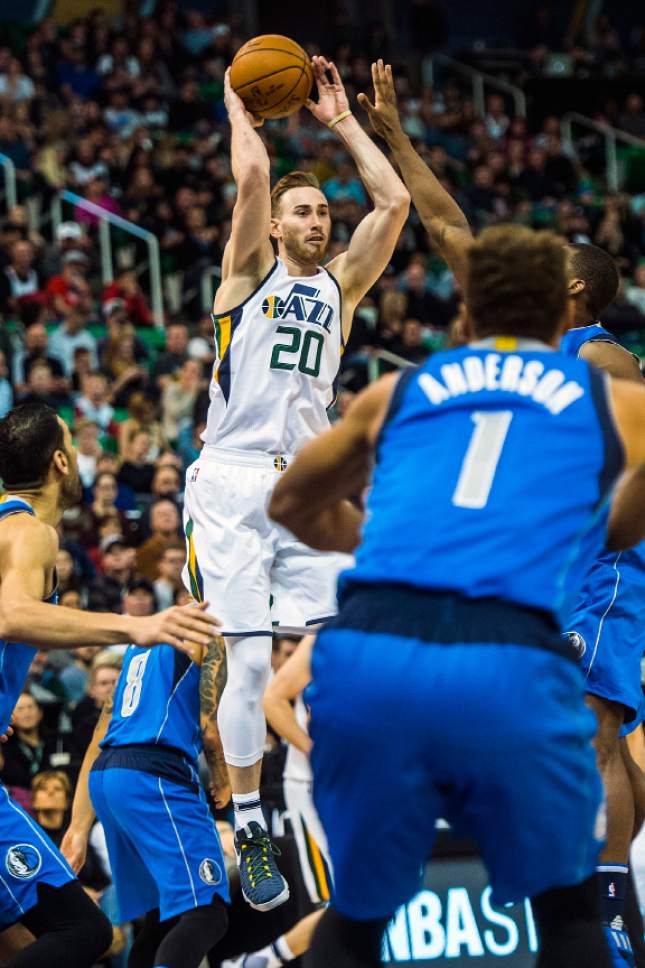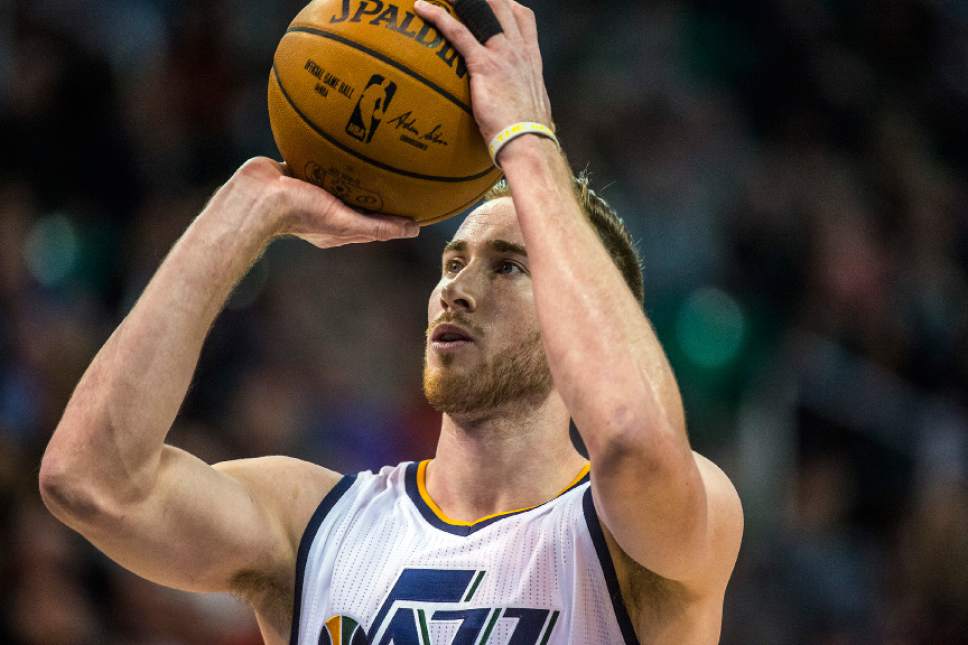This is an archived article that was published on sltrib.com in 2017, and information in the article may be outdated. It is provided only for personal research purposes and may not be reprinted.
Anybody who's consistently watched the Jazz play this season knows the team has a couple of All-Stars on it. And that's more than surprising, given that before the season started, nobody thought the team had any.
That was supposedly the Jazz's weakness.
They were an outfit with a whole lot of good players — as many good players as any other team — but the lack of stars would be their downfall, ultimately, and along the way.
Instead, it has been their strength.
Not every night, but most nights.
The Jazz and their stars still struggle, individually and collectively, at times. We all saw what happened in Boston and Toronto, where an All-Star from each team did them in. But that's part of a unique process, a progression that doesn't come around all that often in the NBA, a league where brilliant players are thought to be just … brilliant, and formidable teams are just … formidable. They either are or they aren't.
The Jazz, conversely, are partway there, a little of both, evolving as we watch. Even as they battle through injuries, they rise, they fall, but mostly they ascend. Exactly where their ceiling is remains a mystery. Think about what could be accomplished when all the pieces are put back together and the growth has neared its peak.
Thirty-seven games in, the 22-15 Jazz, smack dab in the middle of the West's playoff race, have two players — Gordon Hayward and Rudy Gobert — who deserve to be All-Stars and a third — George Hill — who would have gotten strong consideration had he not suffered a sprained thumb, a sprained toe, and taken an elbow to his mug that not only caused his teeth to cut through his lip but also a possible concussion.
In the first release of All-Star fan voting this week, none of those players was near the top. Karl Malone could relate to that. Initial player and media voting are yet to be released. It will take time and probably a coach's pick to make any of the Jazz players officially an All-Star. That's just the way it is.
Hayward is having the best season of his career, a season that no matter how it is measured — traditional statistics, advanced metrics, the eyeball test — has caught the attention of those with eyes to see. Ask him about his stats, though, and a kind of disgusted defiance creases his face, followed by the words: "All I care about is winning."
The 26-year-old has crossed the threshold of hoping to prove himself enough to land a big contract — he's already done that and will get a whole lot more in free agency at season's end — and now sizes up situations against how big the number is in the win column. That kind of advancement is usually reserved for players dancing on the edge of greatness or those who already are there.
Hayward's time spent with Kobe Bryant before this season started seems to have shoved him along in that regard. He may not possess the entirety of Bryant's game, but he's picked up some of the drive and attitude. His demeanor is such that he would just as soon snarl at the world as embrace it, just as soon hit a big shot in its grille and laugh at its pain as greet it with any sort of pleasantry. The boy next door from Indiana, it turns out, is now, at least competitively, a bad man.
That demeanor, of course, becomes laughable if it isn't accompanied by action — and Hayward generally has that covered — 22.2 points, 3.6 assists, six rebounds and a 22.61 player efficiency rating. It is notable that in Jazz wins the small forward scores 4.5 more points and shoots a higher percentage — .472 against .425 — as compared to losses, and that occasionally he still tries to do too much. But his game — at both ends of the floor — has matured in a major way, and any team in the league would love to have him.
Anyone who says Gobert hasn't surpassed expectations is lying. It isn't so hard to remember when he was playing for the Bakersfield Jam of the D-League, and even in the Jazz locker room, after losses in which he did not play, seeing him sitting in front of his locker with a disapproving expression on his face that shouted, "When you guys want to get serious, call on me." That was then.
Now he's at the top, or near the top, of the NBA's best centers, ranking second in field goal percentage (.665), fifth in rebounding (12.2), first in blocks (2.6), first in defensive rating (98.1), and the numbers go on and on. He's averaging 12.5 points and the 12.2 boards.
While Gobert's offensive repertoire remains limited, his teammates are looking for him more when he's near the basket, where he's learned to finish strong. Also, his foul shooting percentage is rising, more evidence of the pay-off for hard work. Overall, opponents are game planning around the center — at both ends. He's a rare individual player who, when he's on the floor, commands every other player's notice. He alters opponents' shots he doesn't block.
Hill's effect on the Jazz has been underscored when he plays — and even more so when he doesn't. How many times after a Jazz loss have you found yourself asking, "What would have happened had George Hill been out there?" Not only is he averaging 18.8 points, 4.2 assists and 3.7 rebounds, with a PER of 25.96, when he's manning the point, everything runs smoother, and the defense is better. His presence on the court steadies a team for the full 94 feet.
There are others evolving here, others pitching in, vets and youngsters, contributing to the Jazz's success — and failures — but, if the club is to ride a rocket toward advantageous positioning in the playoffs, rub-a-dub-dub, there are three men in the tub.
And while that visual is comical, having that trio back on the court together for the stretch run is not — not for other teams in the West. They are the central figures — yeah, emerging stars — making the Jazz a rare configuration in the NBA: a team that could blast through the standard norm that assigns and confines it to the doldrums of unimaginative limitations.
This team's ceiling, through the ups and downs, has yet to be hit.
GORDON MONSON hosts "The Big Show" with Spence Checketts weekdays from 3-7 p.m. on the Zone Sports Network, 97.5 FM and 1280 AM. Twitter: @GordonMonson. —
All-Star credentials
• Gordon Hayward: 22.2 points, 3.6 assists, 6 rebounds, 22.61 PER.
• Rudy Gobert: 12.5 points, 12.2 rebounds, 2.6 blocks, 21.81 PER.
• George Hill: 18.8 points, 4.2 assists, 3.7 rebounds, 25.96 PER.


